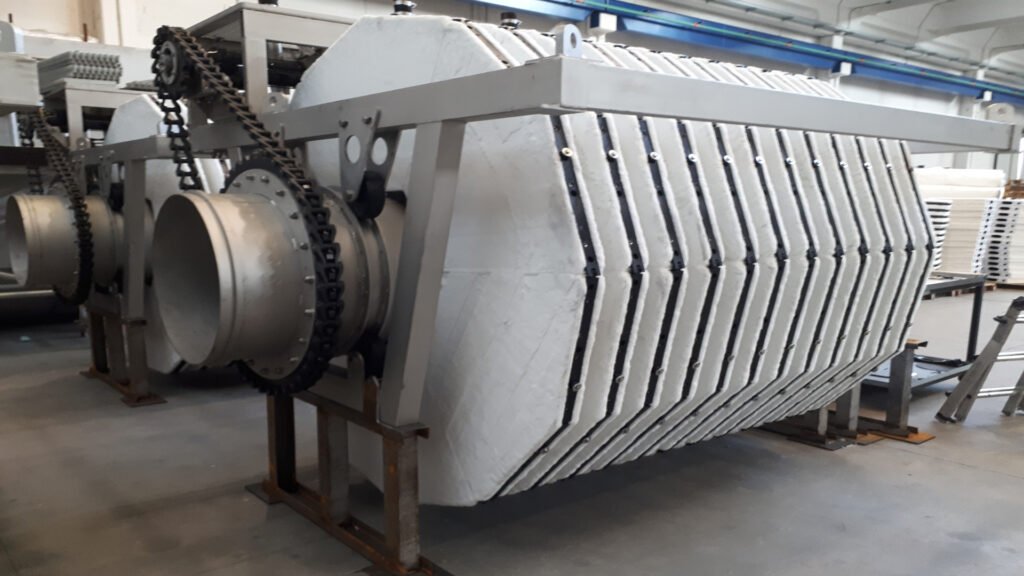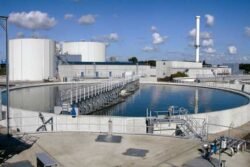Disc Filter Advantages And Disadvantages

Understanding Disc Filters: Advantages and Disadvantages
Disc filters are a type of filtration system widely used in various industries, including water treatment, agriculture, and mining. These filters are lauded for their efficiency, compact size, and ease of use, but like any technology, they come with their own set of advantages and disadvantages. This article delves deeply into the nature of disc filters, exploring how they work, their benefits, and their drawbacks, providing a comprehensive understanding of their role in modern filtration systems.
What are Disc Filters?
Disc filters are mechanical filters characterized by their disc-shaped filtration media, which are usually made from polyester, polypropylene, or other durable materials. The discs are stacked and compressed against each other in a cylindrical form, creating multiple layers of filtration. This configuration allows water or another fluid to flow into the filter and pass through the small gaps between discs, which trap particulates, sediments, and other unwanted materials.
How Disc Filters Work
The operation of disc filters is simple but highly efficient. Here’s a step-by-step breakdown:
-
- Filtration Phase:
-
- Influent Introduction: The fluid to be filtered enters the filter housing.
-
- Disc Stacking: As the fluid flows through the stacked discs, particles larger than the gap size between discs are trapped.
-
- Clean Fluid Passage: Clean fluid exits the filter, free of the trapped particulates.
-
- Filtration Phase:
-
- Backwashing Phase:
-
- Disc filters can be backwashed to remove the captured particulates, regenerating the filter media and extending the service life.
-
- Flow Reversal: The flow of fluid is temporarily reversed.
-
- Disc Separation: Discs are loosened slightly, allowing trapped particles to flush out.
-
- Resumption of Filtration: Once backwashing is complete, discs are compressed again, and normal filtration resumes.
-
- Backwashing Phase:
Types of Disc Filters
Disc filters can be categorized based on their design and specific applications. The common types include:
-
- Manual Disc Filters: Require manual intervention for backwashing.
-
- Automatic Disc Filters: Employ automated systems for backwashing, reducing labor requirements and ensuring continuous operation.
-
- Double Disc Filters: Use two sets of discs for higher filtration efficiency.
-
- In-line Disc Filters: Installed directly in the pipeline to filter right at the source.
-
- End-line Disc Filters: Positioned at the end of the filtration circuit.
Advantages of Disc Filters
1. High Filtration Efficiency
One of the primary advantages of disc filters is their ability to provide high filtration efficiency. The multiple layers of filtration media effectively capture fine particles, ensuring a clean and clear output. This makes them ideal for applications requiring high-purity fluid, such as potable water supply or irrigation systems.
2. Compact Design
Disc filters are known for their compact and modular design. They require less space compared to other filtration systems like sand filters. This compactness is particularly beneficial in installations with limited space, allowing for easy integration into existing systems.
3. Versatility
The versatility of disc filters is another significant advantage. They can be used across various industries, including agriculture, municipal water treatment, industrial processes, and even aquaculture. This adaptability makes them a popular choice for diverse applications.
4. Ease of Maintenance
Disc filters are designed with ease of maintenance in mind. The backwashing process is straightforward, and in the case of automatic disc filters, it’s completely hands-off. This reduces downtime and labor costs associated with cleaning and maintenance.
5. Durability
Made from robust materials like polyester or polypropylene, disc filters are highly durable and resistant to wear and tear. They can withstand harsh environmental conditions and aggressive fluids, ensuring a long service life.
6. Energy Efficiency
Compared to other filtration systems, disc filters are relatively energy-efficient. They require less power to operate, particularly automated systems that can manage backwashing without manual intervention. This results in lower operating costs over time.
7. Scalability
Disc filters offer excellent scalability. Multiple units can be connected in series or parallel to handle larger volumes of fluid or to increase filtration efficiency. This modularity allows for easy scaling of filtration capacity based on specific needs.
Disadvantages of Disc Filters
1. High Initial Cost
One of the main drawbacks of disc filters is the high initial investment. The cost of purchasing and installing disc filters can be significant, especially advanced automatic systems. However, this cost can be offset over time by the low maintenance and operational expenses.
2. Limited Particle Size Range
Disc filters are most effective for particles within a certain size range. While they excel at capturing fine sediments and particulates, they may not be as effective for larger debris or extremely fine particles beyond their designed gap size. This limitation may necessitate additional filtration stages for comprehensive purification.
3. Potential for Clogging
Although disc filters are designed to resist clogging, they are not immune to it. In environments with high particulate loads, frequent backwashing may be required to maintain filtration efficiency, which can increase water usage and operational complexity.
4. Regular Maintenance Required
While maintenance is relatively straightforward, it is still a necessity. Manual disc filters, in particular, require regular attention to ensure they are functioning correctly. Neglecting maintenance can lead to reduced efficiency and potential damage to the filter system.
5. Sensitivity to Oil and Grease
Disc filters can be sensitive to oil and grease, which can clog the small gaps between discs and reduce filtration efficiency. This makes them less suitable for applications where oil or grease contamination is prevalent.
6. Limited Chemical Resistance
Depending on the material of the discs, the chemical resistance of disc filters may be limited. Some aggressive chemicals can degrade the filtration media over time, leading to reduced lifespan and efficiency. Careful consideration of the fluid composition is essential when choosing disc filters for specific applications.
7. Initial Setup Complexity
The installation and setup of disc filters can be complex, particularly for automatic systems. Proper alignment, pressure regulation, and integration with existing systems require careful planning and skilled labor. This complexity can add to the initial setup time and cost.
Applications of Disc Filters
Disc filters are used in a wide range of applications due to their versatility and efficiency. Here are some common uses:
1. Agricultural Irrigation
In agriculture, clean water is crucial for effective irrigation. Disc filters are used to remove sediments, organic material, and other impurities from irrigation water, ensuring the efficient operation of drip and sprinkler systems and preventing clogging.
2. Municipal Water Treatment
Municipalities use disc filters as part of their water treatment processes to ensure clean drinking water for the public. They are effective in removing suspended solids from raw water sources, thereby improving water quality.
3. Industrial Water Filtration
Industries use water for various processes, and disc filters help keep this water clean, reducing wear and tear on machinery and improving overall operational efficiency. Disc filters are used in cooling systems, manufacturing processes, and other industrial applications.
4. Aquaculture
In fish farming, maintaining clean water is crucial for the health of aquatic organisms. Disc filters help remove particulates and sediments from water, ensuring a healthy and sustainable aquaculture environment.
5. Mining
Mining operations generate a significant amount of wastewater laden with sediments and other particles. Disc filters are used to treat this wastewater, removing sediments and allowing for the safe discharge or reuse of water in mining processes.
6. Wastewater Treatment
Disc filters are employed in wastewater treatment plants to remove suspended solids and other impurities from wastewater before it is discharged or further treated. They help in achieving regulatory compliance and protecting the environment.
Case Studies
1. Agriculture: California Vineyard
A vineyard in California faced challenges with sediment-laden irrigation water, which clogged drip emitters and reduced irrigation efficiency. By installing automatic disc filters, they achieved consistent water quality, reduced emitter clogging, and increased crop yield. The backwashing system ensured minimal maintenance, allowing the vineyard to focus more on cultivation rather than troubleshooting irrigation issues.
2. Municipal Water Treatment: City of Boston
The City of Boston implemented disc filters in one of their municipal water treatment plants to address turbidity issues in their raw water source. The compact design of disc filters allowed for easy integration into the existing plant infrastructure. The results were immediate, with a significant reduction in turbidity levels, improved water quality, and compliance with stringent regulatory standards.
3. Industrial Application: Petrochemical Plant in Texas
A petrochemical plant in Texas installed disc filters in their cooling water system to address the problem of particulate contamination. The high filtration efficiency of disc filters helped maintain clean cooling water, improving the efficiency of heat exchangers and reducing equipment downtime. The automatic backwashing feature ensured a continuous process with minimal manual intervention.
Conclusion
Disc filters are a robust solution for various filtration needs, offering high efficiency, versatile application, and ease of maintenance. Their compact design and scalability make them a preferred choice for industries ranging from agriculture and municipal water treatment to industrial processes and aquaculture. However, they are not without drawbacks, such as high initial costs, potential for clogging, and sensitivity to certain contaminants.
Understanding the specific requirements of your filtration application is crucial in determining whether disc filters are the right choice. By weighing the advantages and disadvantages, you can make an informed decision that balances cost, efficiency, and long-term operational benefits. As technology continues to advance, disc filters are likely to evolve, addressing some of their current limitations and expanding their applicability even further.


